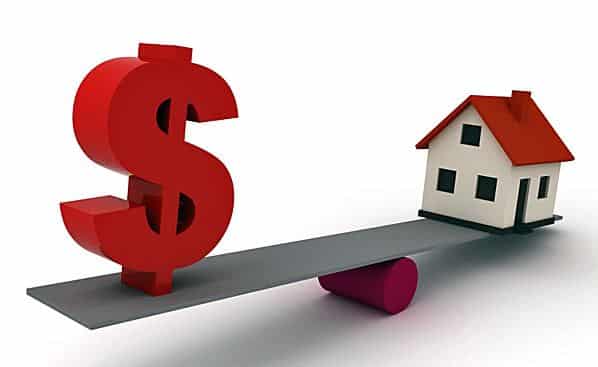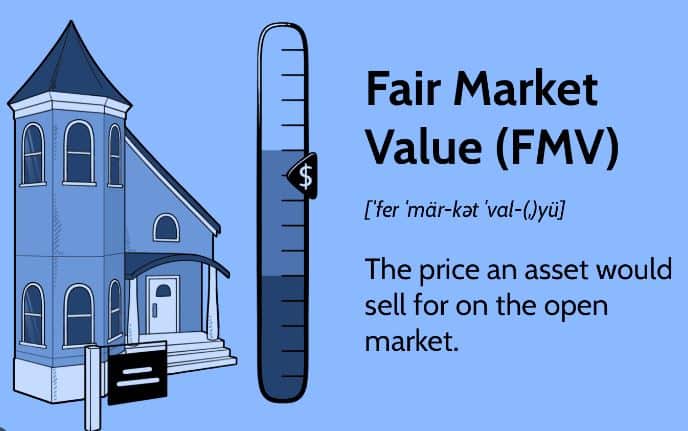
Wondering how to determine the value of a home? Ultimately, the market value of a home is the amount that a buyer is willing to pay for it in the current real estate market. While the perceived value of a home can vary greatly from person to person, there are several key factors that play a role in determining its market value.
Location: One of the most important factors on how to determine the value of a home is its location. A home that is located in a desirable area with good schools, low crime rates, and easy access to amenities such as shopping, entertainment, and transportation will typically command a higher price than a similar home in a less desirable location.
Size and Condition: The size and condition of a home are also important factors in how to determine the value of a home. Larger homes with more square footage generally have a higher market value than smaller homes, and homes that are in good condition and have been well-maintained will typically command a higher price than homes that are in need of repairs or updates.

Age: The age of a home can also play a role in how to determine the value of a home. Older homes that have been well-preserved and updated over time can often command a higher price than newer homes that lack character and charm.
Comparable Sales: One of the most important factors in how to determine the value of a home is its comparable sales or “comps.” Comps are similar homes in the same area that have recently sold, and their sale prices provide a benchmark for determining the market value of a particular home. A home that is similar in size, condition, and location to other recently sold homes will typically have a similar market value. Generally, the closer in proximity the homes are to each other will also matter.
Considerations for “adjustments” (essentially comparative pros and cons) that are often taken in to considering when calculating the market value of a home are:
- Interior layout & design preferences at the time (ie right now, open concept is popular)
- Location & proximity to various types of transit (trains, buses, highways)
- Age
- The interior size of a home (# of bedrooms, bathrooms etc.)
- Garage, carports, decks, number of parking stall, RV parking, etc.
- Upgrades and maintenance such as: renovations, hot water tank/furnace/roof/windows updated, flooring, appliances, and more
- Lot size if detached, and whether the lot is flat, sloped, difficult to build on, in a flood plain, or has large trees with roots located on the lot area
- If strata, contingency reserve funds, special levies, maintenance fees, and overall pro-activeness of the strata
Market value is always changing, and whether something is deemed a RECENT comparable sale is dependent on how fast the market is moving. In a market where homes are selling quickly and prices are rising, market value can change daily. Alternatively, if the market is slow and there aren’t a lot of sales then there may not be very many “similar” properties; which would result in an agent having to search outside of their typical comparables and make a more expansive analysis of the pros and cons of each property to come up with an estimate of market value.

Economic Conditions: How to determine the value of a home can also be impacted by economic conditions such as interest rates, inflation, and the state of the local and national economy.. When interest rates are low, for example, it can be easier for buyers to qualify for a mortgage and afford a higher-priced home, which can drive up prices. Conversely, when the economy is struggling, home prices
Supply and Demand: Another big factor when considering how to determine the value of a home is supply and demand. The relationship between the supply of homes, and the demand for them often yields very high real estate prices. If people perceive that the real estate market is going up and values are increasing, then this often times creates more demand. As you can imagine, this impacts prices even further. Value + demand = an increase in price.
Pro investor tip: As a real estate investor, it is best to buy low and sell high; which is actually contrary to what the general population does when markets value is increasing or decreasing. However, timing the market is incredibly difficult.
Buyer’s Perception: when it comes to determine how to value a home, buyer’s can place different values on different things, and yes, this is where it can get complicated. Value is not always about the basics, and some buyers might pay more for a property based on certain items they perceive as valuable. However, value is truly in the eye of the beholder.
For example, a seller could feel that their new roof that they put on has great value, but the buyer expects the furnace to be in good condition and doesn’t value that furnace as an extra $10,000.
Another example is different buyers in a multiple offer scenario; one buyer may be willing to pay more for the property because it is the only one on the market with 11’ ceilings and large windows that make the area bright, while the other buyer doesn’t consider those as huge value-adds.
When you see a price and think “I would never pay that,” just remember that how to determine the value of a home isn’t based around what YOU will pay or what YOU value a property to be per se. However, market value is taking into consideration the buying population as a whole by pulling multiple comparable properties, recognizing a similar trend and similar price range for those properties, and factoring in overall real estate market conditions.

True Market Value: how to determine the value of a home ultimately leads to TRUE MARKET VALUE. This is the point at which a seller and buyer mutually agree to exchange a house for a certain amount of money.
The simple truth is that houses that are overpriced do not sell, because the market is not willing to pay that price today. Houses that are underpriced get multiple offers, because the market is more than willing to pay that price and more today.
Timing and the current state of the real estate market is a huge factor when it comes to determining market value of a home, and due to the nature of when and how far out property assessments are calculated, this is one of the reasons it is not representative of the current market value of your home.
Ultimately, you shouldn’t put too much weight on assessed value when it comes to the real estate market. Determining market value in real estate is one of the most difficult and complex things to understand as a buyer or a seller, but as experts it is our job to guide you through the process and make sure you are well-advised and well-informed when buying or selling.
Other articles that may be of interest to you:
– Selling Your Home Over The Summer
– The Process Of Selling A Home
– Negotiating Conditions of an Agreement Of Purchase and Sale
If you are in the market to buy or sell a home, let’s chat. I can be reached at 647-896-6584, by email at info@serenaholmesrealtor.com or by completing this simple contact form. And for a quick estimate, find out what your home is worth.
For plenty of other great info, let’s connect on social @serenaholmesrealtor and make sure you’re subscribed to my YouTube Channel.











